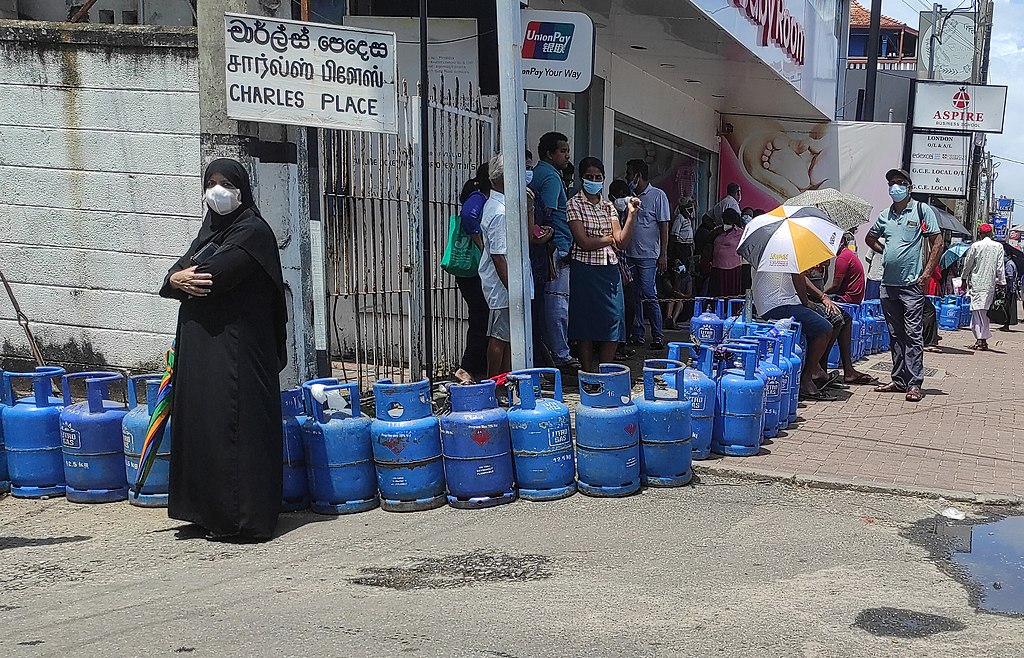Socialist Ideals Amidst Financial Realities
Socialist Ideals Amidst Financial Realities
By Mehmet Enes Beşer
Sri Lanka’s economic journey has been deeply intertwined with its socialist aspirations, shaping its policies and development trajectory since gaining independence in 1948. The nation’s commitment to public welfare, state-led development, and equitable growth has been both a guiding principle and a source of economic challenges. As Sri Lanka confronts contemporary financial realities, it stands at a crossroads, balancing its socialist ideals with the imperatives of economic reform and global integration..
Historical Context: The Foundation of Socialist Policies
Post-independence, Sri Lanka adopted a state-led economic model emphasizing public welfare, subsidies, and employment. This approach was rooted in protectionist measures designed to insulate domestic industries and promote self-sufficiency. The government’s active role in the economy aimed to reduce disparities and ensure equitable distribution of resources. However, over time, these policies led to structural dependencies on foreign aid and loans, as domestic industries struggled to compete globally, and the state’s fiscal burden increased.
Economic Challenges and the Shift Towards Reform
The limitations of prolonged state intervention became evident as inefficiencies and fiscal deficits mounted. The global economic landscape’s evolution necessitated a re-evaluation of Sri Lanka’s economic strategies. The nation’s reliance on imports, coupled with limited export diversification, exacerbated trade imbalances. In response, successive governments initiated reforms aimed at liberalizing the economy, attracting foreign investment, and enhancing competitiveness. These measures included deregulation, privatization of state-owned enterprises, and efforts to integrate more deeply into the global economy.
The 2022 Economic Crisis: A Catalyst for Transformation
The year 2022 marked a significant turning point as Sri Lanka faced one of its most severe economic crises. Characterized by dwindling foreign reserves, soaring inflation, and a debt crisis, the situation underscored the vulnerabilities inherent in the existing economic structure. The crisis prompted widespread public unrest, leading to political upheavals and a collective call for comprehensive reforms. The urgency to address fiscal mismanagement, corruption, and structural inefficiencies became paramount.
The Rise of the National People’s Power (NPP) and New Leadership
In the aftermath of the crisis, the National People’s Power (NPP), a coalition with roots in socialist ideology, gained prominence. Led by Anura Kumara Dissanayake, the NPP capitalized on public discontent with traditional political elites and their handling of the economy. Dissanayake’s election as president in September 2024 signified a shift towards a leadership promising to blend socialist principles with pragmatic economic reforms. His administration faced the formidable task of stabilizing the economy while adhering to the NPP’s foundational ideals of social justice and equity.
Balancing Socialist Ideals with Economic Realities
The Dissanayake administration’s approach reflects an attempt to harmonize socialist aspirations with the exigencies of a modern economy. Key initiatives include:
- Fiscal Reforms and Debt Management: Recognizing the unsustainable debt levels, the government has engaged with international financial institutions, including the International Monetary Fund (IMF), to restructure debt and implement fiscal consolidation measures. Efforts are underway to enhance revenue collection, rationalize public expenditure, and improve fiscal discipline.
- Social Welfare Enhancements: While pursuing economic reforms, the administration remains committed to strengthening social safety nets. Investments in healthcare, education, and rural development aim to uplift marginalized communities and reduce inequality, aligning with the socialist emphasis on equitable development.
- Economic Diversification and Industrial Policy: To reduce dependency on traditional sectors, the government is promoting diversification into technology, manufacturing, and renewable energy. Policies encouraging innovation, skill development, and infrastructure improvement are being implemented to support this transition.
- Good Governance and Anti-Corruption Measures: Addressing systemic corruption is central to the administration’s agenda. Strengthening institutions, enhancing transparency, and enforcing accountability mechanisms are prioritized to restore public trust and ensure effective policy implementation.
Challenges and Prospects
The path to economic revitalization is fraught with challenges. Balancing fiscal austerity with social welfare commitments requires meticulous policy calibration. Global economic uncertainties, such as fluctuating commodity prices and geopolitical tensions, add layers of complexity to domestic reform efforts. Moreover, aligning the diverse expectations of the populace with the pragmatic constraints of economic management necessitates continuous dialogue and adaptive governance.
Sri Lanka’s endeavor to meld socialist principles with contemporary economic imperatives is a testament to its resilience and adaptability. The current administration’s policies reflect a nuanced understanding of the need to evolve while staying true to foundational ideals of equity and social justice. The success of this approach hinges on effective implementation, inclusive policymaking, and the ability to navigate the intricate interplay of domestic aspirations and global realities.

















Leave a Reply